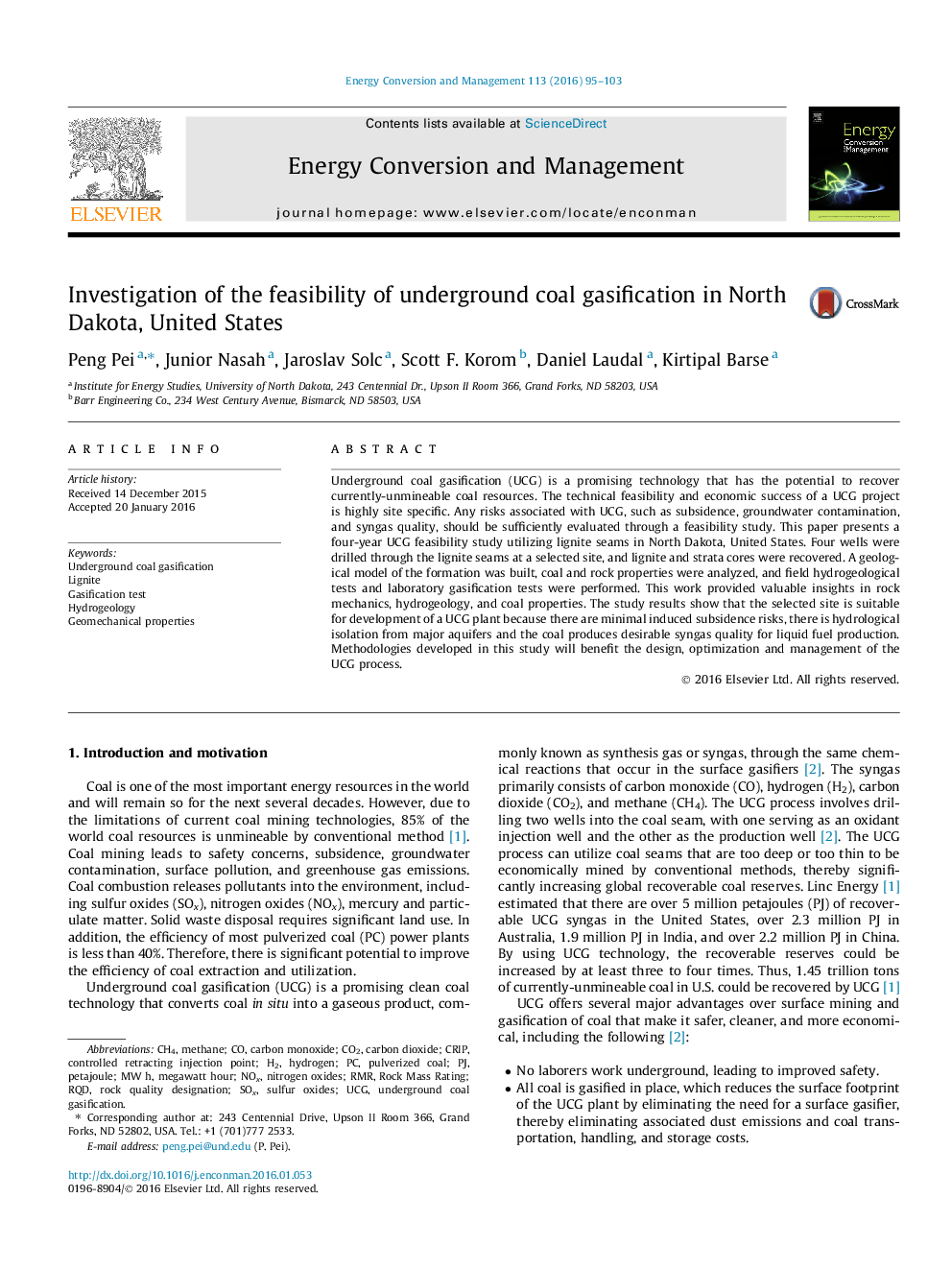| Article ID | Journal | Published Year | Pages | File Type |
|---|---|---|---|---|
| 7161208 | Energy Conversion and Management | 2016 | 9 Pages |
Abstract
Underground coal gasification (UCG) is a promising technology that has the potential to recover currently-unmineable coal resources. The technical feasibility and economic success of a UCG project is highly site specific. Any risks associated with UCG, such as subsidence, groundwater contamination, and syngas quality, should be sufficiently evaluated through a feasibility study. This paper presents a four-year UCG feasibility study utilizing lignite seams in North Dakota, United States. Four wells were drilled through the lignite seams at a selected site, and lignite and strata cores were recovered. A geological model of the formation was built, coal and rock properties were analyzed, and field hydrogeological tests and laboratory gasification tests were performed. This work provided valuable insights in rock mechanics, hydrogeology, and coal properties. The study results show that the selected site is suitable for development of a UCG plant because there are minimal induced subsidence risks, there is hydrological isolation from major aquifers and the coal produces desirable syngas quality for liquid fuel production. Methodologies developed in this study will benefit the design, optimization and management of the UCG process.
Related Topics
Physical Sciences and Engineering
Energy
Energy (General)
Authors
Peng Pei, Junior Nasah, Jaroslav Solc, Scott F. Korom, Daniel Laudal, Kirtipal Barse,
